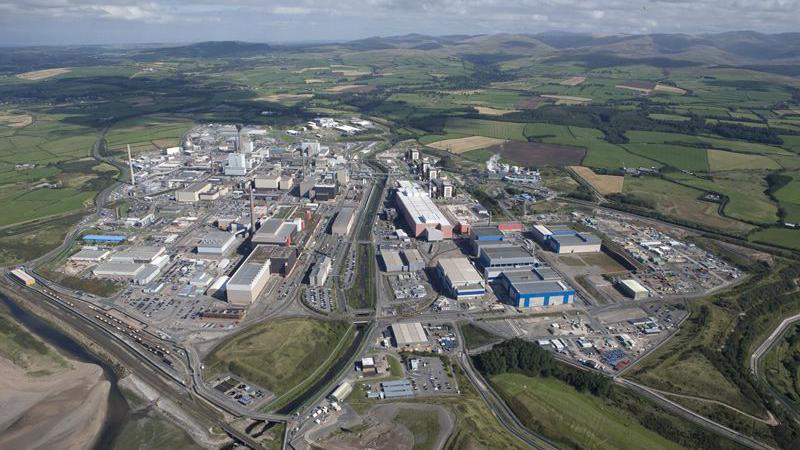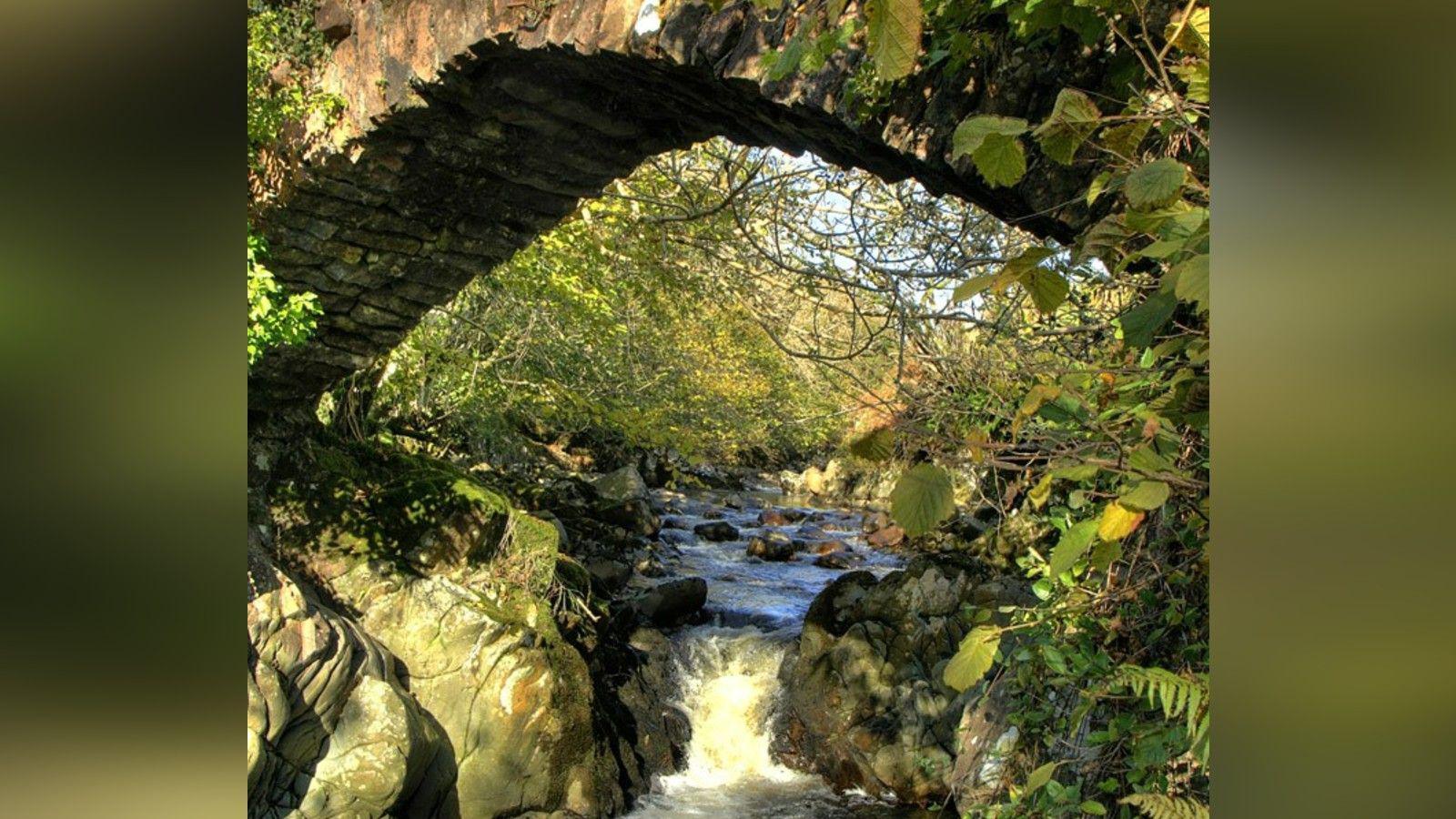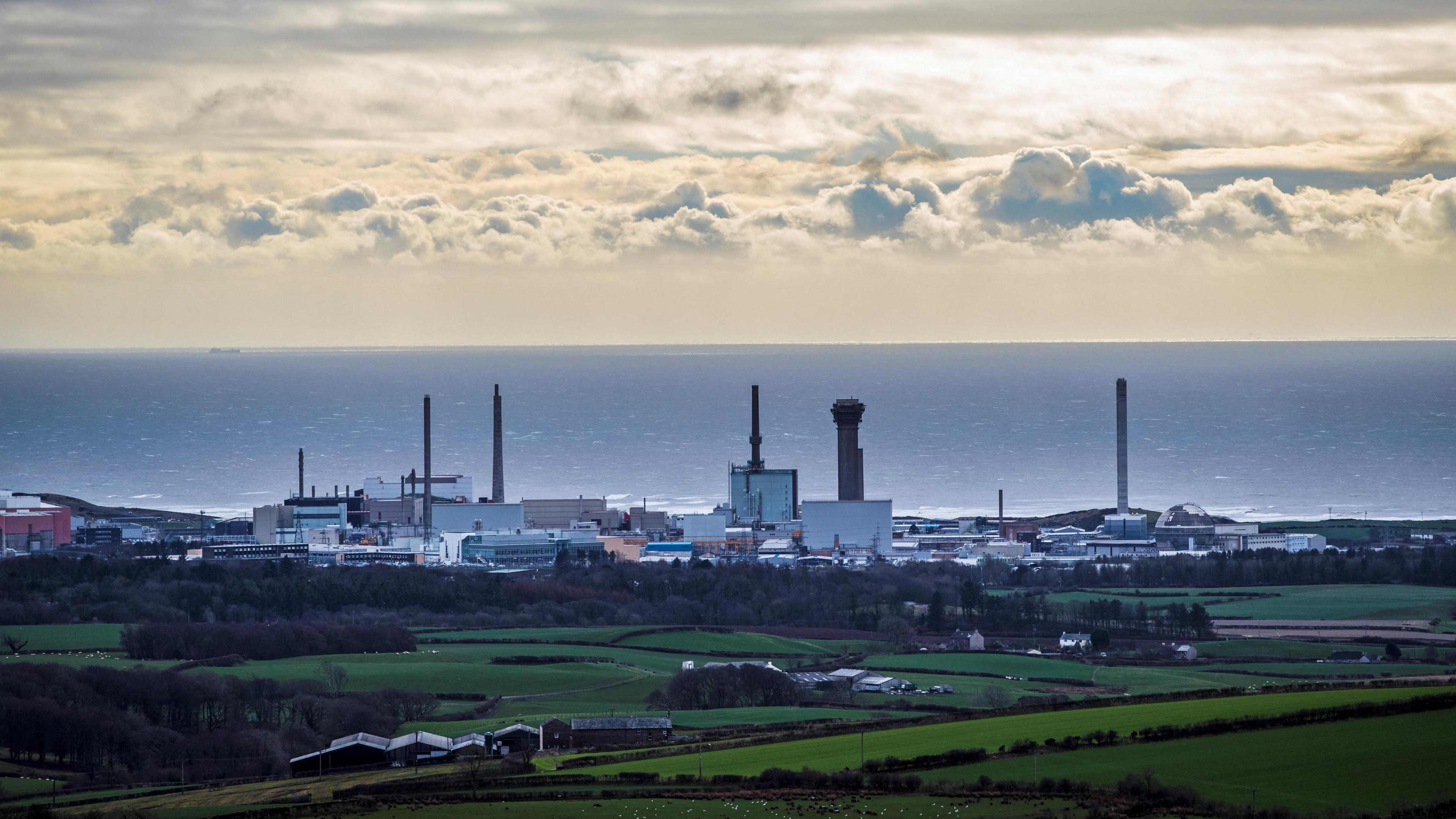Legal challenge against nuclear site's water plans

Sellafield has been granted a licence to extract water as part of plans to build a new radioactive waste store
- Published
An environmental activist is lodging a legal challenge against plans from the UK's largest nuclear plant to remove water from its site.
Marianne Birkby, campaigner for Lakes Against Nuclear Dump (LAND), is contesting a decision by the Environment Agency (EA) to give Sellafield permission to extract water from its Cumbrian plant - a process needed to build a new storage facility for radioactive waste.
Ms Birkby fears the process would produce contaminated water, which would be discharged into the nearby Calder and Ehen rivers.
The EA said it had considered all the potential impacts on the environment before giving permission. Sellafield said the water would not be discharged in the rivers.
Ms Birkby is working with environmental lawyers Leigh Day, who have warned the EA of their intention to pursue a judicial review.
The licence to abstract water was granted to Sellafield in May.

Marianne Birkby fears the plans would pose a danger to the rivers
It is part of a wider project to build the second of four new units to store waste to support the site's decommissioning operations.
Sellafield said the water would have to be extracted when the ground was dug up to build the new facility, and the water removed would mostly be from rainfall.
"Removing water from a construction site is standard practice when preparing land for a building project," a spokesman said.
They added: "The water is pumped to on-site storage tanks where it is tested prior to being discharged direct to sea."
Fears for rivers
Ms Birkby said she feared the environment would "bear the brunt" of the operations, which she said could impact the endangered freshwater pearl mussel population present in the Ehen.
"No-one begrudges Sellafield repackaging leaking nuclear wastes from the Magnox silos, but this should not be at the further expense of Cumbria's rivers and groundwaters," she said.
She added she believed the EA should have required Sellafield to provide a hydrological impact assessment, but the EA said it did not believe that was needed.
"In this case, we did not require a hydrological risk assessment because we consider that the application will not affect any site of nature conservation, significant landscape or heritage, protected species or habitat," a EA spokesman said.
The licence granted to Sellafield would allow the company to extract up to 350,400 cubic metres (77,077,224 gallons) of water a year until 2031.
Nuclear Free Local Authorities, which represents about 25 councils who are against civil nuclear power, has also written to the EA to raise concerns about the permit.
"We are concerned that the proposal will involve nearly one million litres of contaminated water being discharged into the River Calder and out into the sea every day for an unknown length of time," they said.
A EA spokesman said: "When we receive water abstraction license applications we take into consideration all the potential impacts on the environment before determining whether to issue a licence."
Follow BBC Cumbria on X, external, Facebook, external, Nextdoor and Instagram, external.
Get in touch
Do you have a story suggestion for BBC Cumbria?
Related topics
- Published1 May
